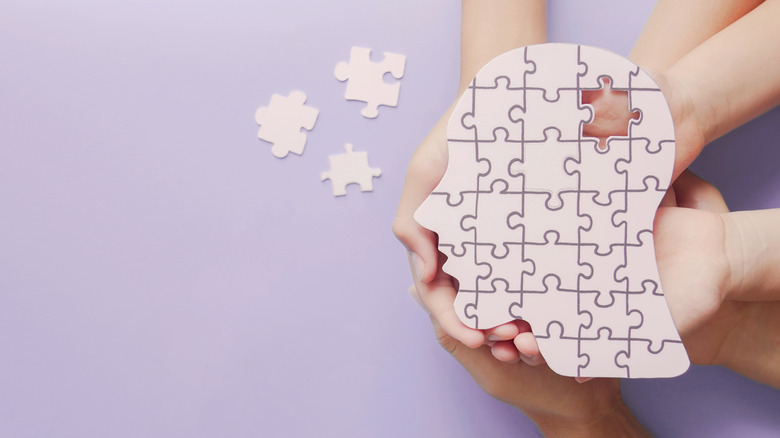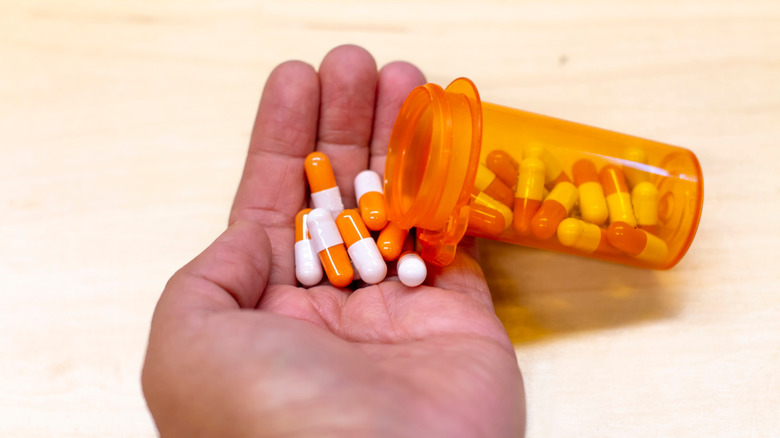Does Caffeine Affect People With ADHD Differently?
Attention deficit hyperactivity disorder, known as ADHD, is characterized by hyperactivity, inattention, and impulsivity (via Neuroscience & Biobehavioral Reviews). These symptoms can vary depending on the person but often make work and school more difficult. These symptoms are always present in childhood and occur across multiple environments. This means that the symptoms are present in both home and school, or home and work.
Did you know that caffeine may improve the ability to focus in individuals with ADHD? Caffeine can improve reaction time, vigilance, and logical reasoning. This means that caffeine helps keep a person alert and improves their ability to think. Researchers proved this in a 2020 study of caffeine use by United States Army soldiers with ADHD (via Journal of Clinical Medicine). While caffeine is not a substitute for medication, the improved cognitive performance seen after caffeine intake can help combat ADHD symptoms such as inattention and impulsivity.
This is how caffeine affects attention and memory
A Johns Hopkins University study showed that caffeine can improve long-term memory. Researchers gave participants 200 milligrams of caffeine in tablet form after showing them a series of images. The participants who received the caffeine tablets were better at differentiating those images from similar ones the following day.
Researchers in another study proved that caffeine results in much higher memory performance in the morning. However, caffeine didn't have the same effect in the afternoon, which means it is more effective after a person has just woken up (via Frontiers in Psychology).
Due to the adverse effects of caffeine, it might not be worth the benefits, especially for people without ADHD. A study published in European Neuropsychopharmacology found that caffeine was not beneficial to the productivity of rats without ADHD. These rats only experienced a temporary dopamine increase, alongside any potential negative effects.
Can caffeine replace ADHD medications?
Is caffeine a valid treatment for ADHD? According to the many studies on caffeine treatment for ADHD, it's worth considering. For example, a 2000 study that assessed caffeine treatment for children with ADHD reported that caffeine was more effective than no treatment at all (via Journal of Attention Disorders). Caffeine could decrease impulsivity, aggression, and perceived symptoms of ADHD in the children studied. Researchers also found caffeine to be better than a placebo in reducing hyperactivity and increasing executive function. However, caffeine was not more effective than typical ADHD medication.
"I would not try to replace medications with caffeine without knowing your specific genotype. Further, caffeine, like any other substance, can be addictive and have additional consequences, specifically increased anxiety and heart palpitations in those who do not break down adrenaline well," Chrissie Williamson, a Doctor of Clinical Nutrition, tells Health Digest over email.
Dr. Arthur Bregman also does not recommend caffeine for ADHD treatment and tells Health Digest that "ADHD patients who are on prescribed stimulants (i.e., Adderall or Ritalin) and drink caffeinated drinks can develop severe restlessness and jitteriness. This may lead to non-compliance of the stimulants."
Caffeine can cause anxiety if you have too much, and it can be a trigger for those who already have anxiety. Keep this in mind when considering caffeine as a treatment, especially since anxiety disorders are common among people who have ADHD (via BMC Psychiatry).



